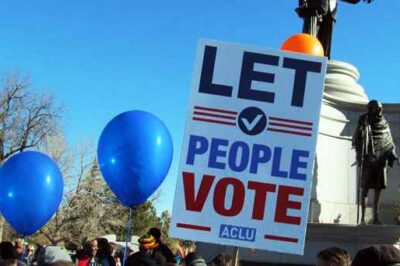Congress to Examine Juvenile Life Without Parole — A Human Rights Stain for the U.S.
The 110th Congress, for all its faults, has really marked an important shift at the federal-level on juvenile justice reform. Congress has refused to move a punitive-heavy, “get tough” gangs bill. In fact, there was a hearing back in June on positive, intervention and prevention-based strategies to confront youth violence and gangs. Imagine that, actually highlighting practices that have been shown to work. I must be working in the wrong city! Anyway, just before the August recess, the Senate Judiciary Committee approved reauthorization of the landmark Juvenile Justice and Delinquency Prevention Act. Later this afternoon, there is going to be a hearing in the House Judiciary Subcommittee on Crime regarding legislation that would end the practice of sentencing children to life without the possibility of parole — the Juvenile Justice Accountability and Improvement Act.
This is an issue that the ACLU has been working on for years, and we are very happy to see it finally getting the attention it deserves and is long overdue. Estimates have placed the number of individuals serving life without parole sentences for crimes committed before the age of 18 approaching 2,500 — a disproportionate number being children of color. Sadly, this is a uniquely American practice. Until February of this year, Human Rights Watch found juveniles serving life without parole sentences in only one other country — Israel (which had a total of seven individuals serving such sentences). However, Israeli officials have confirmed that the seven individuals serving these life without parole sentences are now entitled to parole review, leaving the U.S., with its nearly 2,500 cases, all alone in the world.
Since 2006, three different international human rights treaty bodies have expressed grave concerns over the practice of sentencing children to life without parole. In 2006, the national ACLU and the ACLU of Michigan filed a petition with the Inter-American Commission on Human Rights on behalf of 32 juveniles who were tried and convicted as adults and given mandatory life sentences for crimes committed when they were under the age of 18 without any consideration to their status as children. This petition is still pending before the Commission to this day.
Hopefully today’s hearing won’t be the end-all-be-all, but rather the first serious step by Congress in what will eventually spell the end of one of the most pressing human rights challenges confronting our criminal justice system. Here’s hoping…




